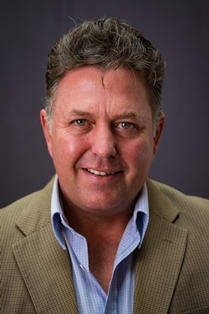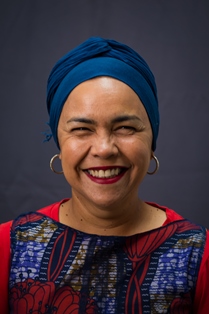In line with UCT’s emphasis on cutting edge research, the Department of Social Development places great importance on scholarship. Current research interests of the Department include social policy and social protection systems, the social development of emergent communities, clinical intervention strategies, restorative justice, research on gender identity inequalities and social transformation, human development and capabilities as pathways out of poverty & social exclusion, criminal justice social work, child & youth care, social administration and planning, domestic and intimate partner violence and HIV/AIDS care strategies.
At present staff in the Department are involved in national, regional and international research collaborations in the fields of mental health, comparative social policy in Africa, conflict resolution and community development, financial management of the third sector and mapping social protection systems in Africa, criminal justice social work and domestic violence.
Examples of current staff related research:

Associate Professor Leon Holtzhausen is part of a longitudinal and intercontinental study that aims to explore the factors related to psychosocial adjustment, prosocial and antisocial behaviour during early adulthood. The title of the study is: International study of pro/antisocial behaviour in young adults (SOCIALDEVIANCE1820). The study has four main aims: To test the universality of childhood adverse experiences as risk factors for antisocial attitudes, psychosocial adjustment problems, and inhibitors of prosocial attitudes. Potential mediators will also be analysed. To investigate the intercultural validity of some of the key features of Integrated Cognitive Antisocial Potential (Farrington, 2017), the age-graded theory of informal social control (Sampson & Laub, 2005), deviant peer contagion theory (Dishion, 2011), psychopathy as a unified theory of crime (DeLisi, 2009), and the developmental psychopathology perspective (Cicchetti, 2016). To explore whether coping strategies and important life events (e.g. marriage) are related to pro/antisocial attitudes and psychosocial adjustment across cultures. To evaluate the psychometric proprieties and cross-cultural invariance of assessment scales for deviance, antisocial, and psychosocial functioning outcomes. Among other advantages, this objective will assist in providing more psychometrically validated scales in each one of the partner countries. He is also involved in another study entitled: The experiences and perceptions of Child Protective Service Workers in the provision of child protective services to vulnerable children and their families – A National Study. The main purpose of this study is to achieve a better understanding of how working with vulnerable and abused children and their families impacts child protective service workers (CPS). As little is known about how CPS workers are affected by rendering child protective services to vulnerable children and their families, this study a) will explore the CPS workers’ retrospective views and current perspectives on their experience with working with vulnerable children and their families, b) review the impact such experiences have on the worker; c) explore the circumstances of whether or how CPS workers experienced morale shifts when or after a child is abused or victimised. |

Ronald M. Addinall was co-opted as an expert contributor to the WHO Advisory Team for the South African contingent in the: “Toward ICD-11 categories on Gender Incongruence: Evaluation of validity, reliability and utility among transgender people” consultation and research project which started in December 2014. He also contributed towards the development of the planned research for the evaluation of validity, reliability and utility of proposed categories for the Paraphilias. Essentially a process that addressed an interrogation of the potential validity of the clinical utility of the recommended diagnostic criteria of Gender Incongruence and Paraphilias as a diagnosis in the upcoming ICD-11 to replace the Transsexualism amd Paraphilia diagnosis in ICD-10. This Gender Incongruence research process also occurred collaboratively in three other countries (Mexico, India and Brazil) under the auspices of the WHO. A research outcome of the work of the advisory team in South Africa is a South African study titled: “Gender Incongruence of Adolescence and Adulthood (GIAA)”. The study ran over 2016 and 2017. Based on some of the data of the study there has been the submission of an article for publication to the Annals of Psychiatry titled: “Experiences of gender incongruence and the relationship between social exclusion, psychological distress and dysfunction among South African transgender adults. A field-study for ICD-11. The collaborative article was accepted for publication in the Annals of Psychiatry for August 2018. The authors of the article are: Megan M Campbell (corresponding author), Department of Psychiatry and Mental Health, University of Cape Town; Ana Fresán Department of Clinical Epidemiology, Sub-direction of Clinical Research, National Institute of Psychiatry “Ramón de la Fuente Muñiz”, Ministry of Health, Mexico; Ronald M. Addinall, Department of Social Development, University of Cape Town, Werner Böhmke; Department of Psychology, Rhodes University; Gerhard P. Grobler, Department of Psychiatry, University of Pretoria; Adele Marais Department of Psychiatry and Mental Health, University of Cape Town; Don Wilson, Department of Psychiatry and Mental Health, University of Cape Town; Dan J Stein Department of Psychiatry and Mental Health, University of Cape Town; Geoffrey Reed Global Mental Health Program, Columbia University Medical Centre, New York, NY, USA, Centre for Research in Global Mental Health, National Institute of Psychiatry Ramón De la Fuente Muñiz, Mexico City, Mexico. Rebeca Robles, Department of Models of Attention, Direction of Epidemiological and Psychosocial Research, National Institute of Psychiatry “Ramón de la Fuente Muñiz”, Ministry of Health, Mexico. |

Fatima Williams is undertaking research with her Masters student in the field of domestic violence together with the Knowledge Co-op at UCT.
|
